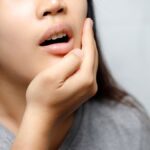Chest acne is a common skin concern that can be frustrating and uncomfortable. Understanding the underlying causes is the first step towards effective treatment and prevention. This article explores eight common reasons why you might be experiencing pimples on your chest.
Hormonal Fluctuations and Chest Acne
Hormonal changes, particularly those experienced during puberty, menstruation, and pregnancy, can significantly impact sebum production. Increased sebum, combined with dead skin cells and bacteria, can clog pores and lead to acne breakouts on the chest.
Sugary Foods and Their Impact on Skin Health
Diets high in sugary foods and refined carbohydrates can trigger inflammation and hormonal imbalances, contributing to acne development. These foods cause rapid spikes in blood sugar, which can stimulate oil production and exacerbate breakouts on the chest and other areas.
Dehydration’s Role in Chest Acne
Insufficient water intake can lead to dehydration, causing the skin to become dry and flaky. This dryness triggers the sebaceous glands to produce more oil, potentially clogging pores and leading to pimples on the chest. Staying adequately hydrated is crucial for maintaining healthy skin.
Exercise-Induced Chest Acne
While exercise is beneficial for overall health, sweat and friction from tight-fitting clothing can irritate the skin and trap bacteria, leading to chest acne. Wearing loose, breathable fabrics and showering promptly after workouts can help prevent this.
Laundry Detergents and Skin Irritation
Certain laundry detergents, especially those containing harsh chemicals, dyes, and fragrances, can irritate sensitive skin and contribute to chest acne. Opting for hypoallergenic and fragrance-free detergents can minimize this risk.
Sun Exposure and Dry Skin
Excessive sun exposure can dry out the skin, leading to increased oil production and clogged pores. Protecting your chest from the sun with clothing or sunscreen can help prevent acne breakouts. Additionally, dry skin from sun exposure can exacerbate existing acne.
Oily Moisturizers and Clogged Pores
Using oily or comedogenic moisturizers on the chest can block pores and trap dirt and bacteria, leading to acne. Choosing non-comedogenic or oil-free moisturizers is essential for preventing breakouts.
Makeup and Perfumes as Acne Triggers
Applying makeup or perfumes directly to the chest can irritate the skin and clog pores. These products often contain ingredients that can exacerbate acne, so avoiding their use on the chest is recommended. If makeup is necessary, choose non-comedogenic options specifically formulated for acne-prone skin.
In conclusion, chest acne can result from a variety of factors, including hormonal imbalances, diet, hygiene practices, and certain products. Identifying the underlying cause is crucial for effective treatment and prevention. If you’re struggling with persistent chest acne, consulting a dermatologist can provide personalized guidance and solutions.

